bookinginheels
Member since April 2013
Books Read
Reviews
Avg Rating
Day Streak
bookinginheels Reader Score
Check out their progress!
11
On Your Wishlist
11 × 1 = 11 pts
73
Books Completed
73 × 4 = 292 pts
7
Reviews Written
7 × 6 = 42 pts
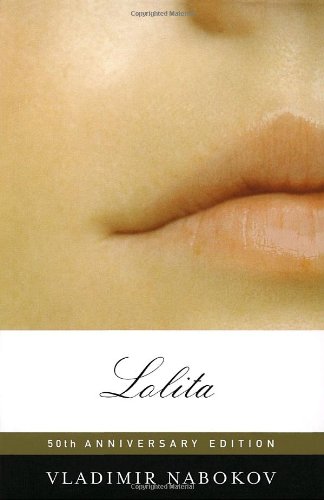
Lolita
Lolita, light of my life, fire of my loins. My sin, my soul. Lo-lee-ta: the tip of the tongue taking a trip of three steps down the palette to tap, at three, on the teeth.
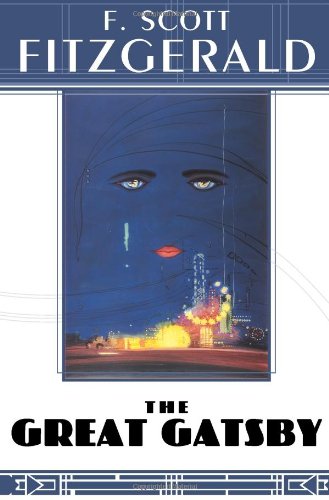
The Great Gatsby
In my younger and more vulnerable years my father gave me some advice that I've been turning over in my mind ever since.


Emma
Emma Woodhouse, handsome, clever, and rich, with a comfortable home and happy disposition, seemed to unite some of the best blessings of existence; and had lived nearly twenty-one years in the world with very little to distress or vex her.
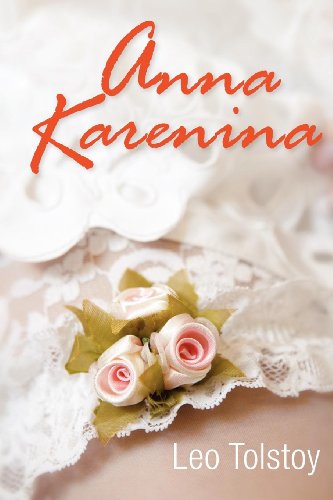
Anna Karenina
Happy families are all alike; every unhappy family is unhappy in its own way. (C. Garnett, 1946) and (J. Carmichael, 1960)All happy families resemble one another, but each unhappy family is unhappy in its own way.All happy families resemble one another, every unhappy family is unhappy after its own fashion. (N. H. Dole, 1886)All happy families are alike; each unhappy family is unhappy in its own way. (Pevear, Volokhonsky, 2000)
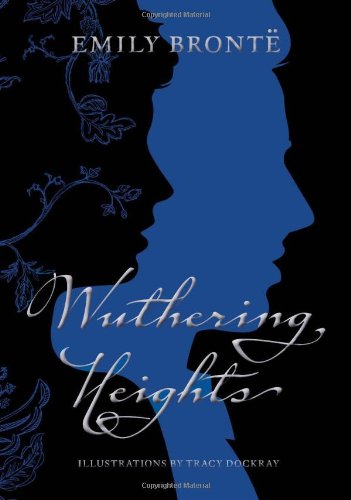

Pride and Prejudice
It is a truth universally acknowledged, that a single man in possession of a good fortune, must be in want of a wife.
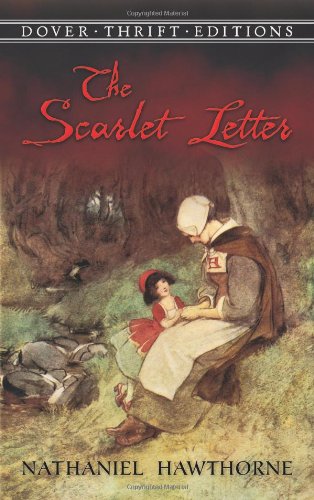
The Scarlet Letter
A throng of bearded men, in sad-colored garments and gray, steeple-crowned hats, intermixed with women, some wearing hoods, and others bareheaded, was assembled in front of a wooden edifice, the door of which was heavily timbered with oak, and studded with iron spikes.

Jane Eyre
There was no possibility of taking a walk that day. We had been wandering, indeed, in the leafless shrubbery an hour in the morning; but since dinner (Mrs. Reed, when there was no company, dined early) the cold winter wind had brought with it clouds so sombre, and a rain so penetrating, that further out-door exercise was now out of the question.
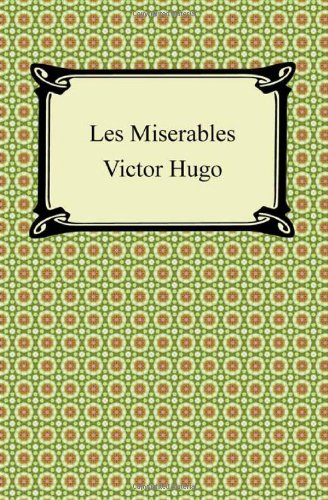
Les Misérables
In the Year 1815 Monseigneur Charles-François-Bienvenu Myriel was Bishop of Digne.

Frankenstein
You will rejoice to hear that no disaster has accompanied the commencement of an enterprise which you have regarded with such evil forebodings.The event on which this fiction is founded has been supposed, by Dr. Darwin, and some of the physiological writers of Germany, as not of impossible occurrence. i- preface by P.B. Shelley/i
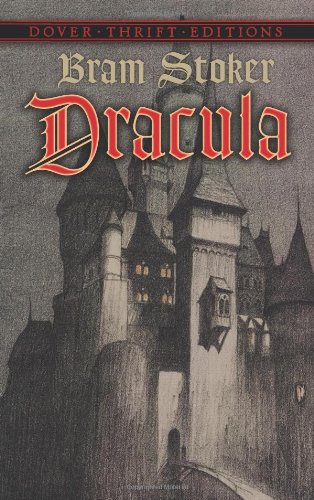

The Three Musketeers
On the first Monday of April 1625, the market town of Meung, the birthplace of the author of the iRoman de la Rose/i, was in a wild state of excitement.
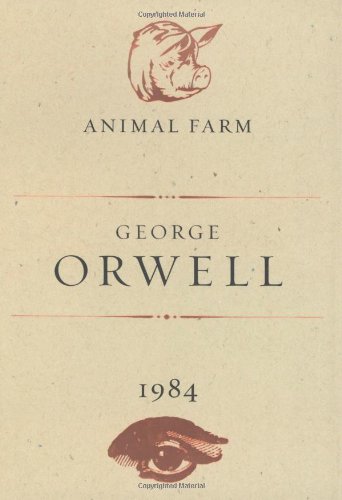
Animal Farm
Mr. Jones, of the Manor Farm, had locked the hen-houses for the night, but was too drunk to remember to shut the popholes.

Lord of the Flies
The boy with fair hair lowered himself down the last few feet of rock and began to pick his way toward the lagoon.

To Kill a Mockingbird
When he was nearly thirteen, my brother Jem got his arm badly broken at the elbow.
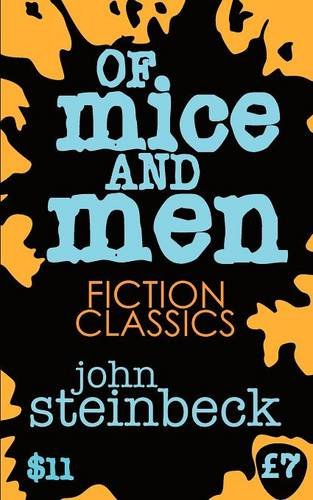
Of Mice and Men
A few miles south of Soledad, the Salinas River drops in close to the hillside bank and runs deep and green.
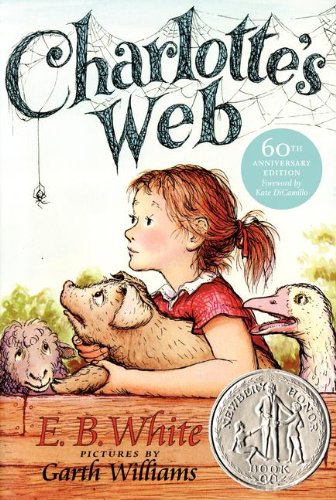
Charlotte's Web
Where's Papa going with that ax?" said Fern to her mother as they were setting the table for breakfast.
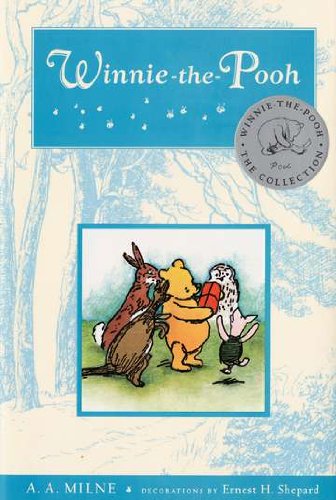
Winnie-the-Pooh
Here is Edward Bear, coming downstairs now, bump, bump, bump, on the back of his head, behind Christopher Robin.
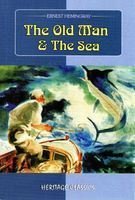
The Old Man and the Sea
He was an old man who fished alone in a skiff in the Gulf Stream and he had gone eighty-four days now without taking a fish.
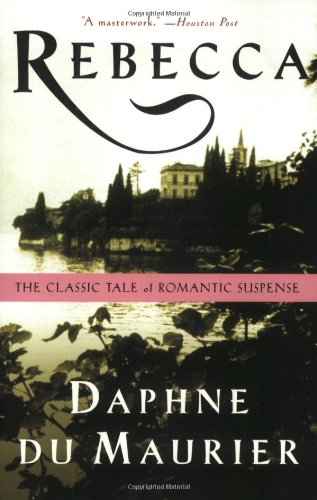
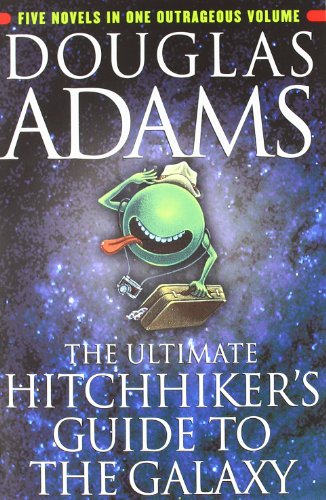
The Hitchhiker's Guide to the Galaxy
Far out in the uncharted backwaters of the unfashionable end of the Western Spiral arm of the Galaxy lies a small unregarded yellow sun. Orbiting this at a distance of roughly ninety-eight million miles is an utterly insignificant little blue-green planet whose ape-descended life forms are so amazingly primitive that they still think digital watches are a pretty neat idea.
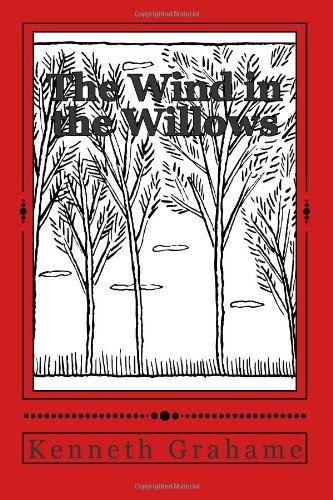
The Wind in the Willows
The Mole had been working very hard all the morning, spring- cleaning his little home.

The Diary of a Young Girl
On Friday, 12th June, I woke up at six o' clock and no wonder; it was my birthday
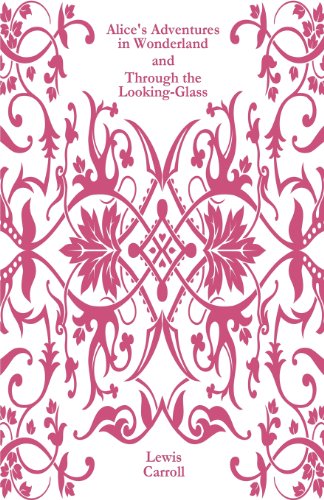
Alice's Adventures in Wonderland and Through the Looking Glass
Alice was beginning to get very tired of sitting by her sister on the bank, and of having nothing to do; once or twice she had peeped into the book her sister was reading, but it had no pictures or conversation in it, "and what is the use of a book," thought Alice, "without pictures or conversations?"

If on a Winter's Night a Traveler
You are about to begin reading Italo Calvino's new novel, <i>If on a winter's night a traveler.</i>Stai per cominciare a leggere il nuovo romanzo Se una notte d’inverno un viaggiatore di Italo Calvino.

His Dark Materials
Lyra and her daemon moved through the darkening hall, taking care to keep to one side, out of sight of the kitchen. (Northern lights)Will tugged at his mother's hand and said, "Come on, come on..." (The subtle knife)In a valley shaded with rhododendrons, close to the snow line, where a stream milky with melt-water splashed and where doves and linnets flew among the immense pines, lay a cave, half-hidden by the crag above and the stiff heavy leaves that clustered below. (The amber spyglass)

Harry Potter and the Philosopher's Stone
Mr. and Mrs. Dursley, of number four, Privet Drive, were proud to say that they were perfectly normal, thank you very much.
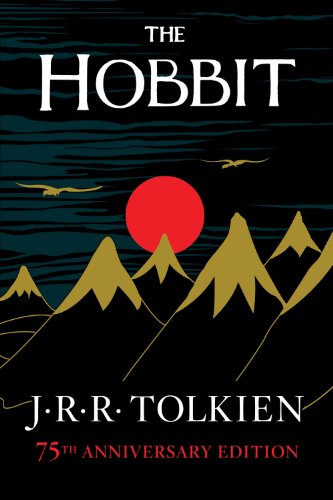
The Hobbit
In a hole in the ground there lived a hobbit. Not a nasty, dirty, wet hole, filled with the ends of worms and an oozy smell, nor yet a dry, bare, sandy hole with nothing in it to sit down on or to eat: it was a hobbit-hole, and that means comfort.
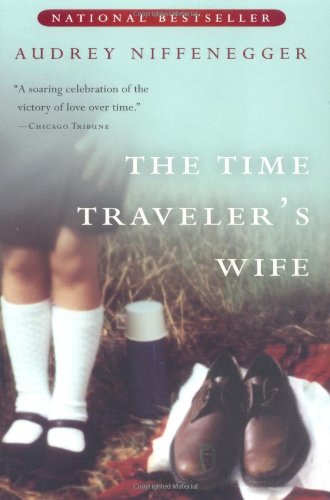
The Time Traveler's Wife
<b>PROLOGUE - Clare:</b> It's hard being left behind.<b>FIRST DATE, ONE<BR></b><i>Saturday, October 26, 1991 (Henry is 28, Clare is 20)</i><BR><BR><b>Clare:</b> The library is cool and smells like carpet cleaner, although all I can see is marble.

Memoirs of a Geisha
One evening in the spring of 1936, when I was a boy of fourteen, my father took me to a dance performance in Kyoto.Suppose that you and I were sitting in a quiet room overlooking a garden, chatting and sipping at our cups of green tea while we talked about something that had happened a long while ago, and I said to you, 'That afternoon when I met so-and-so ... was the very best afternoon of my life, and also the very worst afternoon.'
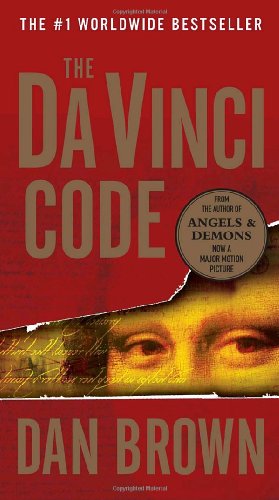
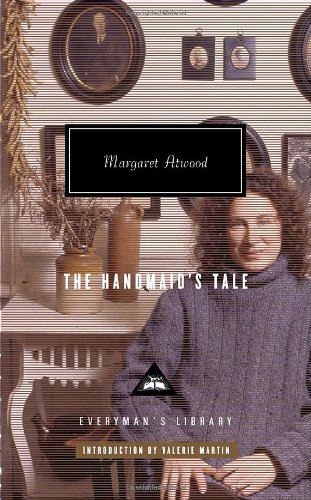


Cold Comfort Farm
The education bestowed upon Flora Poste by her parents had been expensive, athletic and prolonged; and when they died within a few weeks of one another during the annual epidemic of influenza or Spanish Plague which occured in her twentieth year, she was discovered to possess every art and grace save that of earning her own living.

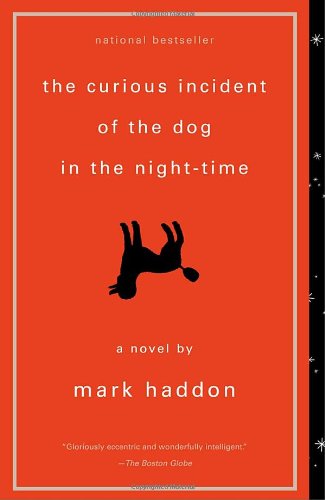

The Lovely Bones
My name was Salmon, like the fish; first name, Susie.Inside the snow globe on my father's desk, there was a penguin wearing a red-and-white-striped scarf.
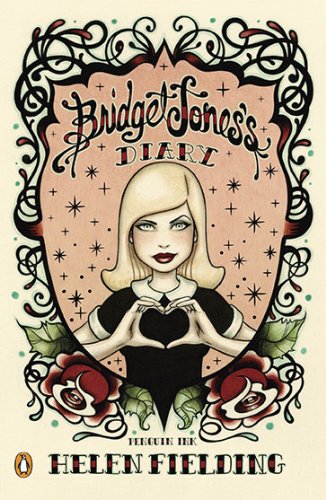
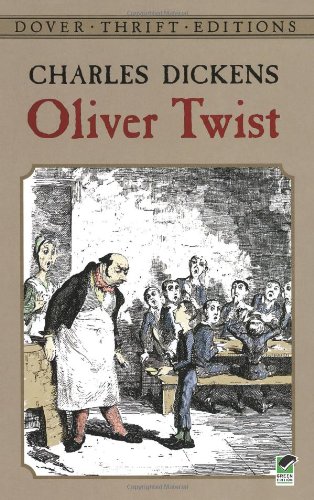
Oliver Twist
Among other public buildings in a certain town, which for many reasons it will be prudent to refrain from mentioning, and to which I will assign no fictitious name, there is one anciently common to most towns, great or small: to wit, a workhouse; and in this workhouse was born; on a day and date which I need not trouble myself to repeat, inasmuch as it can be of no possible consequence to the reader, in this stage of the business at all events; the item of mortality whose name is prefixed to the head of this chapter.
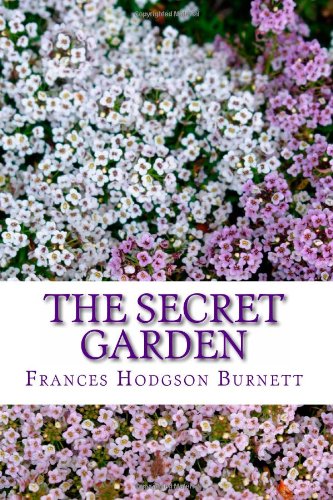
The Secret Garden
When Mary Lennox was sent to Misselthwaite Manor to live with her uncle, everybody said she was the most disagreeable-looking child ever seen.
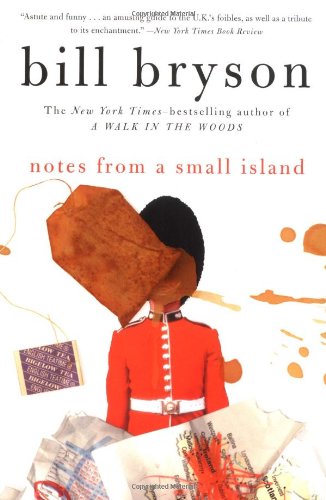
Notes from a small island
My first sight of England was on a foggy March night in 1973 when I arrived on the midnight ferry from Calais.

A Christmas Carol
Marley was dead: to begin with. There is no doubt whatever about that. The register of his burial was signed by the clergyman, the clerk, the undertaker, and the chief mourner. Scrooge signed it: and Scrooge’s name was good upon ’Change, for anything he chose to put his hand to. Old Marley was as dead as a door-nail.

Cloud Atlas
Beyond the Indian hamlet, upon a forlorn strand, I happened on a trail of recent footprints.

The Five People You Meet in Heaven
This is a story about a man named Eddie and it begins at the end, with Eddie dying in the sun.
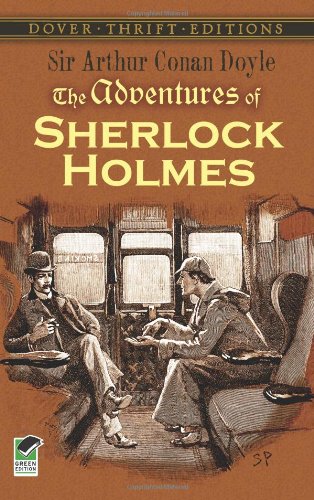
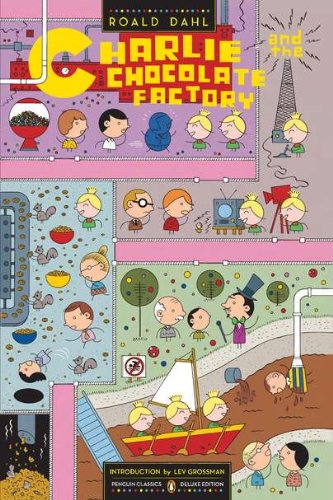
Charlie and the Chocolate Factory
These two very old people are the father and mother of Mr Bucket.

Harry Potter and the Chamber of Secrets
Not for the first time, an argument had broken out over breakfast at number four, Privet Drive.

Harry Potter and the Goblet of Fire
The villagers of Little Hangleton still called it 'the Riddle House', even though it had been many years since the Riddle family had lived there.

Harry Potter and the Prisoner of Azkaban
Harry Potter was a highly unusual boy in many ways.
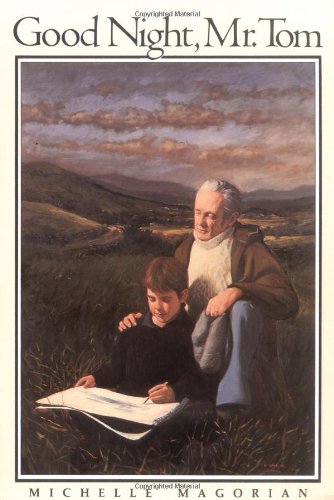


Noughts & Crosses
'Honestly, Mrs Hadley,' said Meggie McGregor, wiping her eyes.'Honestly, Mrs Hadley,' said Meggie McGregor, wiping her eyes. 'That sense of humour of yours will be he death of me yet!'
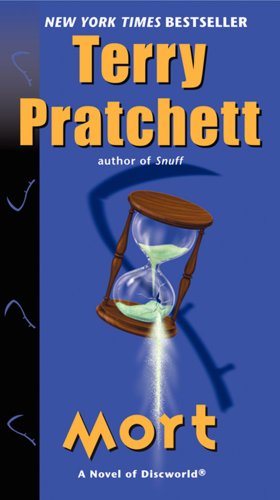
Mort
This is the bright candlelit room where the lifetimers are stored - shelf upon shelf of them, squat hourglasses, one for ever living person, pouring their fine sand from the future into the past.

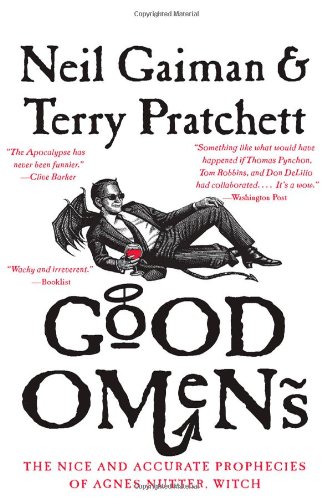

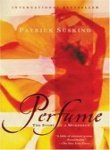
Perfume: The Story of a Murderer
In eighteenth century France there lived a man who was one of the most gifted and abominable personages in an era that knew no lack of gifted and abominable personages.

Night Watch
Sam Vimes sighed when he heard the scream, but he finished shaving before he did anything about it.

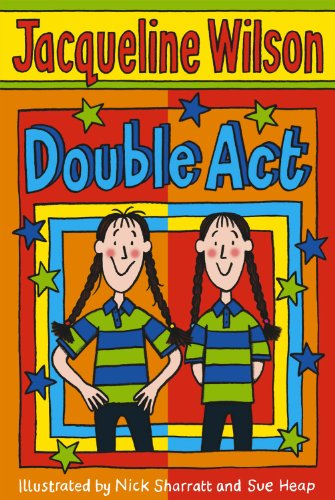
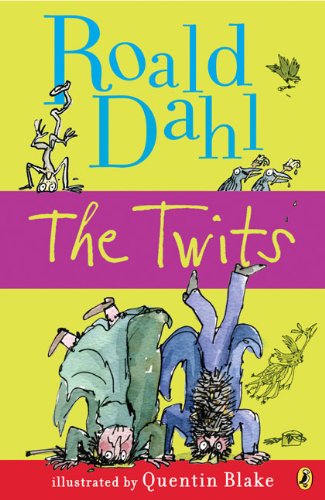
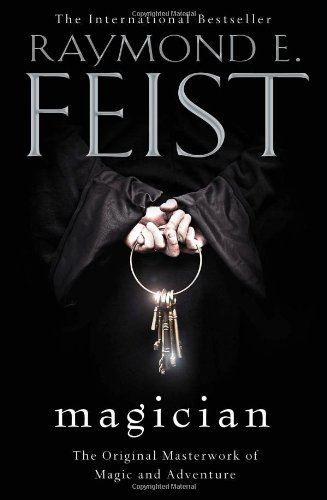
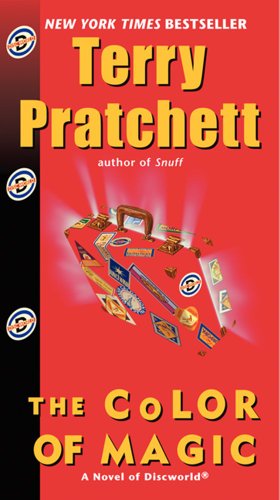
The Colour of Magic
In a distant and second-hand set of dimensions, in an astral plane that was never meant to fly, the curling star-mists waver and part...
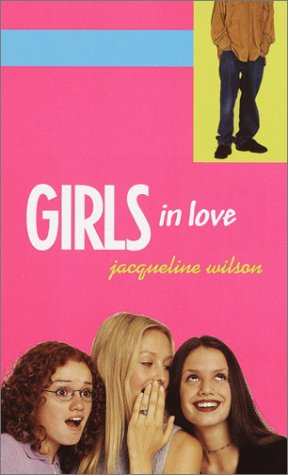

The Princess Diaries
Tuesday, September 23 <p>Sometimes it seems like all I ever do is lie.</p>
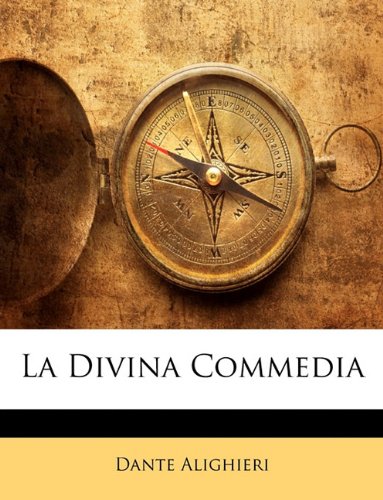
Commedia
Nel mezzo del cammin di nostra vita/mi ritrovai per una selva oscura,/chè la diritta via era smarrita.Mildway upon the journey of our life I found myself within a forest dark, For the straightforward pathway had been lost.
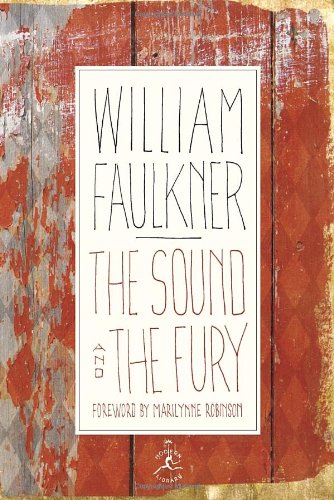
The Sound and the Fury
Through the fence, between the curling flower spaces, I could see them hitting.
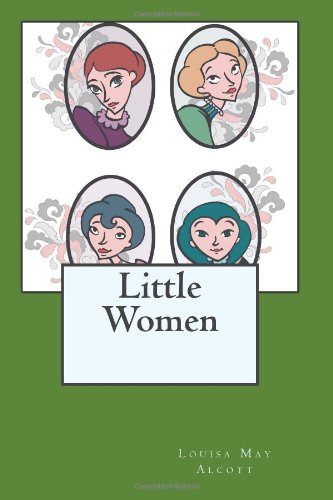
Little Women
“Christmas won't be Christmas without any presents,” grumbled Jo, lying on the rug.

The Lord of the Rings
When Mr. Bilbo Baggins of Bag End announced that he would shortly be celebrating his eleventy-first birthday with a party of special magnificence, there was much talk and excitement in Hobbiton.
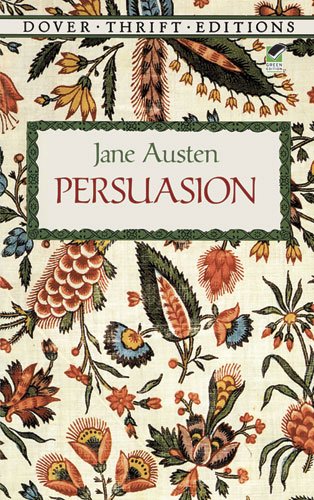
Persuasion
Sir Walter Elliot, of Kellynch-hall, in Somersetshire, was a man who, for his own amusement, never took up any book but the Baronetage; there he found occupation for an idle hour, and consolation in a distressed one; there his faculties were roused into admiration and respect, by contemplating the limited remnant of the earliest patents; there any unwelcome sensations, arising from domestic affairs, changed naturally into pity and contempt.
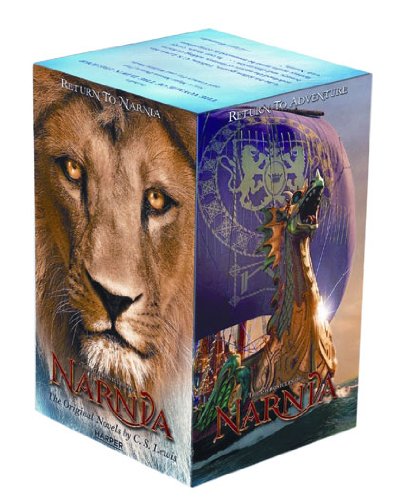
The Chronicles of Narnia
There is a story about something that happened long ago when your grandfather was a child. (From <i>The Magician's Nephew</i>, first in chronological order)Once there were four children whose names were Peter, Susan, Edmund and Lucy. (From <i>The Lion, the Witch and the Wardrobe</i>, first in publication order)
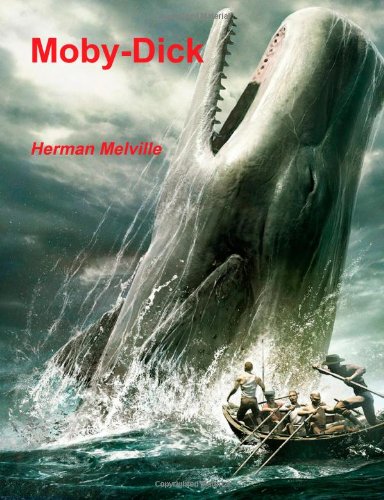
Moby-Dick
Call me Ishmael. Some years ago—never mind how long precisely—having little or no money in my purse, and nothing particular to interest me on shore, I thought I would sail about a little and see the watery part of the world.

Moby-Dick
Call me Ishmael. Some years ago—never mind how long precisely—having little or no money in my purse, and nothing particular to interest me on shore, I thought I would sail about a little and see the watery part of the world.
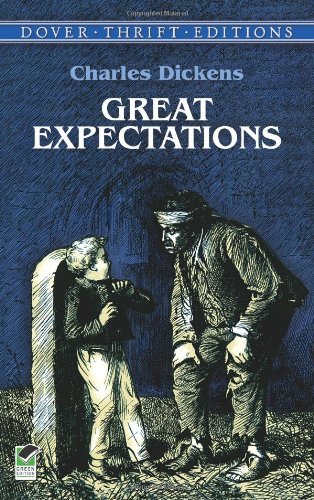
Great Expectations
My father's family name being Pirrip, and my christian name Philip, my infant tongue could make of both names nothing longer or more explicit than Pip. So, I called myself Pip, and came to be called Pip.
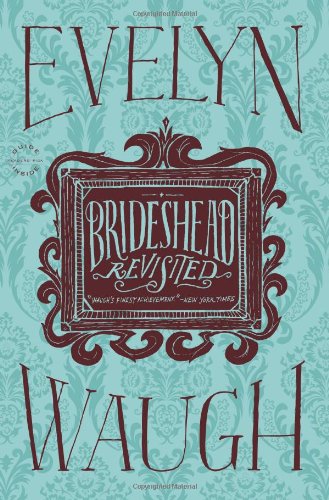
Brideshead Revisited
When I reached C Company lines, which were at the top of the hill, I paused and looked back at the camp, just coming into full view below me through the grey mist of early morning.
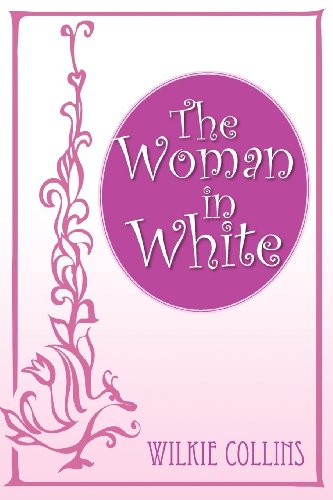
The Woman in White
This is the story of what a Woman's patience can endure, and what a Man's resolution can achieve.

Gone with the Wind
Scarlett O'Hara was not beautiful, but men seldom realized it when caught by her charm, as the Tarleton twins were.

Atonement
The play – for which Briony had designed posters, programs and tickets, constructed the sales booth out of a folding screen tipped on its side, and lined the collection box in red crepe paper – was written by her in a two-day tempest of composition, causing her to miss a breakfast and a lunch.

A Prayer for Owen Meany
I am doomed to remember a boy with a wrecked voice - not because of his voice, or because he was the smallest person I ever knew, or even because he was the instrument of my mother's death, but because he is the reason I believe in God;- I am a Christian because of Owen Meany.

The Shadow of the Wind
I still remember the day my father took me to the Cemetery of Forgotten Books for the first time.Todavia recuerdo aquel amanecer en que mi padre me llevo por primera vez a visitar el Cementerio de los Libros Olvidados.
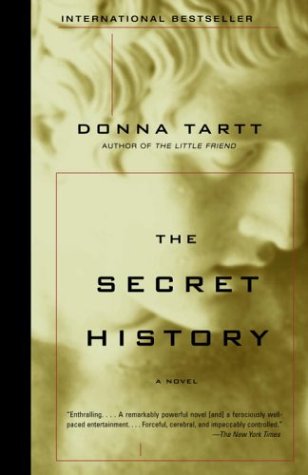
The Secret History
The snow in the mountains was melting and Bunny had been dead for several weeks before we came to understand the gravity of our situation. (Prologue)Does such a thing as "the fatal flaw," that showy dark crack running down the middle of a life, exist outside literature?

Watchmen
Rorschach's Journal. October 12th, 1985: <br>Dog carcass in alley this morning, tire tread on burst stomach. This city is afraid of me. I have seen its true face.

I have to admit to not really enjoying The Old Man and the Sea much. For one thing, I don't like fish in the slightest. I once had a panic attack in a pet shop because I felt like they were crowding me. And yes, yes - a story about a fisherman has fish in it!? I know, I was as surprised as you... Normally I can deal with them in literature, but this has some fairly graphic fishness that I Really Did Not Like. At one point Santiago has his head stuck inside a gutted dolphin.
Fish aside, as I understand that not everybody is as broken as me, it's still just an alright story. It does tell a story at least - there's a beginning, a middle and an end - and it's not some rambling diatribe on the meaning of life. The ending is rather anti-climactic, rendering the whole novella almost pointless.
Basically, I doubt that you'll genuinely enjoy this unless you a) enjoy fishing or b) want to search for hidden meaning. I know that I've come across as quite disparaging, but The Old Man and the Sea just wasn't for me.

The plot of the novel isn't much explained on the blurb - it explains Hester's situation, but not the emotional journey she faces throughout. In fact, it's not even primarily about her. The point of view stays mostly with the father of the child, with a little about Pearl and less about her mother. I won't mention who the father actually is, although he's identified to the reader fairly early on. Regardless of his identity, the novel narrates his struggle with the burden of his sin - he has not been punished as Hester has and so feels the weight more heavily.
I had steeled myself for a novel-length lecture on weakness and untrustworthiness of women, while men are strong but are tempted to sin by those evil women. In fact, I found it fairly pro-women. A lot of reviews have slated it as anti-feminist but I really, really don't see it. Obviously Hester is spurned by her village (it's set in the 1640s, after all) for her adultery, but she is ordered several times to name the father so he can be adequately punished also. It's mentioned several times they're both condemned, not just her. The narrative seems to pity her somewhat - she always holds herself with dignity and fervently tries to repent for her sin. The reader's attention is often drawn to this in an attempt to make us feel for her what her village cannot.
My copy of The Scarlet Letter has a huge red 'A' stamped on the front, but it would be impossible to forget it regardless. Mr. Hawthorne calls attention to it frequently so Hester is somehow embodied by that one red patch of colour. It almost has a life of its own - it's what the townsfolk see when they look at her and Pearl can't quite get past the symbol embroidered on her mother's chest. It's a very moving piece of imagery.
It's not really light reading. It's taken me a good few days to struggle through, to be honest. The story is wonderful, but the prose and dialogue can be a bit... stodgy. Although it was written in 1850, it's set two hundred years earlier and the syntax reflects that. It's rather preachy and moralistic, but that's only to be expected. I'd only recommend picking it up if you're willing to exert a lot of time and effort into it. It's definitely worth it, but it's a slog.
I really liked the ending, although it's not what I would have expected. It's not happy nor sad, but it is a fitting conclusion. It was especially clever how the townsfolk each adapted the spectacle to suit their own beliefs and wishes. That's what the book was about, for me - about the emotion and judgement of regular people, and how sin can more easily be borne when it's not kept to yourself.

I just couldn't get into Lord of the Flies at first, but I'm not sure if that was due to an actual slow beginning in the novel or my preconceptions caused by well-meaning family members. Regardless, at first I found it incredibly hard work. Not a lot happened, other than being introduced to the characters and getting profoundly irritated with their arrogance and superiority. Piggy is clearly the most sensible and logical of the lot, but he is ignored and ridiculed even when he's clearly trying to help. Understandably he gets frustrated, and so did I. Their behaviour irritated me so much I almost couldn't bear to read it any longer.
However, by about page 85 I was completely and irretrievably hooked. There's just something about the atmosphere William Golding creates that meant I wouldn't have put the book down if the house was on fire. The island itself has a very heady, muggy aura that seems to permeate through the pages until you swear you can feel the sun soaking through your skin. Other times, the terror and panic described on the pages is so real, and the difference between these two, although written by the same author, is immense. I've never, ever read an author with such a talent for atmosphere.
The first rhythm that they became used to was the slow swing from dawn to quick dusk. They accepted the pleasures of morning, the bright sun, the whelming sea and sweet air, as time when play was good and life so full that hope was not necessary and therefore forgotten.
The physical description of the island is also wonderful - it creates a picture so vivid that your imagination barely has to work. That said, there were a few times when I struggled to understand the layout of the island. I'm not sure if Golding uses topographical terms or whether I just couldn't follow it, but various ridges, canyons and slopes seemed to pop up without me really understanding what they were doing.
The characterisation is especially clever - throughout the book, Ralph is forced to grow in ways different to the other boys. As Chief, he struggles with having to make difficult decisions and constantly has to remind the other boys to do their chores - without them, their fragile civilisation will fall apart and Ralph knows that. The change in him by the end of the book is almost tangible, and the relationships between the boys undergoes a lot of different alterations. I can't wait to reread this book knowing what I do about the characters now.
In a moment the platform was full of arguing, gesticulating shadows. To Ralph, seated, this seemed the breaking-up of sanity. Fear, beasts, no general agreement that the fire was all-important: and when one tried to get the thing straight the argument sheered off, bringing up fresh, unpleasant matter.
It's quite a gruesome book. There's violence, disturbing dreams and animal slaughter and it doesn't skimp on the details either. Still, I really do think it was necessary in this case. Nothing annoys me more that unnecessary gore, but here the entire point of the novel is the boys' descent into savagery. The 'Lord of the Flies' himself is a gross concept, but a very clever one. Again, disturbing but necessary.
For me, the message wasn't that everybody is evil deep down, it was that everybody is selfish deep down. When thrust into a situation like this one, it's human nature to think only of your own survival. Everybody goes about that in a different way, which is obvious from the behaviour of both Ralph and Jack - one is being more selfish and obstinate than the other, but ultimately they're both doing what they think is right, regardless of how it may affect other people.
I absolutely loved Lord of the Flies, which is great as I completely wasn't expecting to. The atmosphere, the tension, the terror... it doesn't surprise me that William Golding won the Nobel Prize for literature. I can't really see the movie or stage adaptation working, but this book has shot straight up to being one of my all-time favourites.

I think the key to getting along with Cold Comfort Farm is accepting it as a parody. It's not really meant to be a serious work of fiction. Instead, it's a send-off of the earlier rural novels like those by D.H. Lawrence and Thomas Hardy. Now, I do like what I've read of Lawrence so far, but I still appreciate what Stella Gibbons was trying to do. More than that, it's actually funny. Flora's well-intentioned contempt for her family's bad habits shows itself in dry, sarcastic comments which even made me snort at one point. Perhaps I should be next in line for fixing up by Flora...
That's basically the plot of the book. Flora is suddenly forced to live on a meagre income after the death of her parents, and so decides to reside with her distant family, the Starkadders, at Cold Comfort Farm. On arrival, she sees her cousins for exactly what they're intended to me - exaggerated, cartoonish cliches of all those rural novels. There's Amos who's obsessed with religion, Judith and her profound depression, the over-sexed Seth, the contraceptionally unaware and therefore always pregnant Meriam and the commoner in love with the gentry plot-line of Elfine. They're all so loveable in their extremes that you can't help but wish for a happy ending.
It's a very accessible book - it flew by in a matter of hours for me. It takes a few pages to get used to the heavy accents of the Starkadder family but it's not really much of a problem after that.
'I ha' scranleted two hundred furrows come five o'clock down i' the bute.'
It was a difficult remark, Flora felt, to which to reply. Was it a complaint? If so, one might say, 'My dear, how too sickening for you!' But then, it might be a boast, in which case the correct reply would be, 'Attaboy!' or more simply, 'Come, that's capital.' Weakly she fell back on the comparatively safe remark:
'Did you?' in a bright, interested voice.
The literary influences are quite obvious. As well as the afore-mentioned Lawrence and Hardy (Huh. Unintentional, but vaguely amusing regardless...), Flora reminds me strongly of Emma Woodhouse with her insistence on 'fixing' the problems of everybody herself. Then there are a number of discussions between Flora and Mr. Mybug regarding the true author of Jane Eyre - whether it be Charlotte herself or Branwell Bronte. Flora becomes understandably quite irritated at this and calms herself by quoting Mansfield Park when she returns home.
Not only did I enjoy Cold Comfort Farm, I also read and enjoyed the introduction, and seriously - who does that? It's by Lynne Truss in my edition, which is the Penguin Modern Classics version with the cow pictured above (incidentally, the cows in the book are called Graceless, Pointless, Feckless and Aimless, which amused me no end). I don't normally bother with the introductions to classics, but I gave the first few pages a quick scan and liked what I read. Instead of a long, dreary introduction about the symbolism and hidden messages as usual, Ms. Truss briefly talks about how she was introduced to the book and what it means to her now. I love hearing personal reminisces of reading - to me it's much more interesting that critical interpretation.
Long story short, I really enjoyed this book and I can't wait to start tracking down some of Stella Gibbons' other books.

It really is so good though. I mean, it's hardly action packed as it's mostly about four sisters and their struggles to conquer their own flaws. Meg is vain about her looks, Jo is a bit of a tomboy and has a temper, Beth is shy and Amy is selfish and spoilt. It's more interesting than that though - it's about their relationships, feelings and little dramas as they struggle to grow up and improve themselves.
It just seems to involve you somehow. The characters are all so real, each with their own personalities that jump off the page that you care deeply about what happens to each and every one. It's weird though - I don't like Jo much and everybody else seems to. There isn't a main character exactly, but it's told from her POV more than any other and she just... irritates me. She's always being petted, much more than Amy who's meant to be the spoilt one, and never gets in trouble for anything, however dangerous her prank may have been.
I do like Beth though, she's by far my favourite. She's so gentle and sweet and never gets the recognition for it. Also, for some reason I keep picturing Amy as a very young Kirsten Dunst. Oh. I've just gone and researched the film and Amy is played by Kirsten Dunst. Huh. To be fair though, I didn't picture her as she looked in the film, more as Dunst a la Interview with a Vampire.
I could still do without the preachiness as it dates the book a little, but the sisters' genuine affection for each other is still wonderfully touching.
My copy of the book told me that Louisa May Alcott didn't actually want to write the book in the first place and didn't like it when it was finished. She was pressured by a publisher to do so and she consented in order to have a book of her short stories published also. 'I don’t enjoy this sort of thing. Never liked girls or knew many, except my sisters.'
Mmm. This is a bit dated but I do really recommend reading it. It's so nice that it can't help but cheer you if you're feeling low.

You'd be amazed how hard it was to find a plot summary that didn't make it feel like an 800 page 19th Century Russian classic... oh wait. That's the thing though - it really doesn't feel like that. It shocked me how easy it was to get into the story and how accessible the language was. I wouldn't have said it was an easy read, but I didn't even have to refer to the list of characters at the front - somehow my head managed to keep the characters and their relationships straight without any trouble at all. It was a nice surprise.
Speaking of characters, I had the Wordsworth edition, translated from the Russian by Louise and Aylmer Maude. Story good, translation not so good. They tend to change the characters names as well as the prose, which doesn't make a whole lot of sense. Surely names are names, regardless of language? As an illustration - the bloke down the road is called Steve. The mechanic in the shop is called Steve. My best friend's Dad is called Steve. The Russian Prince Stephen Arkadyevich Oblonsky, however, should not be called Steve.
Seriously, they translated it as 'Steve.' A minor point in the whole grand scheme of things, but come on. It went 'clunk' in my head every time I read it. Idiots.
I do seem the have got the whole character thing backwards though. I read a lot of the other bloggers' Read Along posts, I noticed that the vast majority didn't really like Anna herself as a person while I really, really did. She actually reminded me of myself quite a lot. I don't mean her circumstances, because obviously I've never abandoned my husband and child to run off with another man, but we just seem to have vaguely similar thought patterns. Not necessarily in a good way - she 'mind-reads' and works herself round in circles to end up at the worst possible result. I don't know, I just kind of felt for her. A lot of her situation was her own doing, but if this happened in modern society she would clearly be on some sort of medication.
It did surprise me how the novel isn't actually that much about Anna herself, considering that she's the title character. Obviously she's a part of it, but the other five or so main characters just have as much 'screen-time' as she does, if not more. The narrative changes whose point of view it follows regularly, but Anna and Vronsky's situation can be left alone for many chapters at a time.
A lot of the other bloggers seem to have a thing for Levin, which I don't really understand. I mean, he's acceptable as a secondary character but I just didn't think he stood out in any way. He seemed fairly flat, and a lot of the parts in his POV involved huge ranty monologues about farming or politics.
Good Lord, the farming. The huge majority of Part Three is just Levin talking with his acquaintances about farming, and it was fairly disheartening to fall in love with the book during Parts One and Two and then have to skim 80 pages about crop rotation. Then again, much later in the book, Levin goes on a field trip to an election and I once again wanted to hurl the book at Leo Tolstoy's head. Even he didn't understand what was going on, so how was I meant to!?
I really can't emphasise enough how tedious these parts are, but it's partly because the interesting parts of the book are so accessible that these stand out even more. The experiences of Anna, Vronsky, Kitty and a few others are fascinating and the author writes in such a way that you may as well be in their head. There's a lot of description, but it doesn't really halt the flow of the book.
And the ending, oh the ending. I still think that Parts Seven and Eight should have been the other way round - finishing off the 800 page novel with a stodgy Levin chapter just doesn't make a whole lot of sense - but the real ending was marvellous. I mean, it hurt me to my very core, but it's one I'll definitely remember for a long, long time. I suppose it does fit in with the message Tolstoy was trying to convey about adulterous women getting their comeuppance. Still, like I said above, I liked Anna!
So, to finally wrap-up a whole month of reading Anna Karenina... I really liked this book. I'm 100% positive it didn't need to be anywhere near that long, nor did it need such lengthy, dry conversations about farming and politicals (or, in occasional and suicide-inducing moments, both), but I felt that the other parts more than make up more it. It's actually a surprisingly accessible lengthy classic about a woman who gives up everything for love.
2026 Reading Goal
Books Read
50 books to go!
